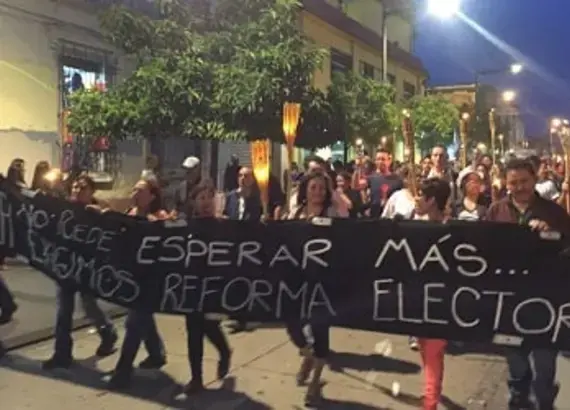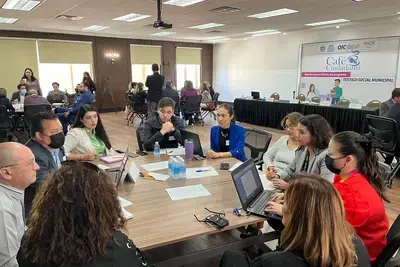
Success Story
Protests and Participation: New Avenues for Citizen-Led Reform in Guatemala
Every Saturday since mid-April, thousands of Guatemalans have gathered peacefully in front of the main government offices to protest corruption and impunity. They are pressing for, among other things, significant reforms in the electoral and justice systems, a reaction to the discovery of tax evasion, money laundering and influence peddling among high government officials.
The disclosure, by the International Commission Against Impunity in Guatemala (CICIG) and the Attorney General’s office, sparked public outrage that forced the resignation of the vice president and other public officials. The rising wave of political activism has allowed civil society groups to take a more active role in promoting reforms alongside members of Congress and other government officials than at any time since the signing of the 1996 Peace Accords that ended 36 years of brutal internal conflict.
In response to the protests, the Guatemalan Congress has partnered with civil society organizations to create joint legislative-civil society working groups, such as the Working Group on the Reform of the Law on Elections and Political Parties (Ley Electoral y de Partidos Políticos, or LEPP), to present reform legislation to Guatemala’s Congress later this month. More than 170 organizations and individuals began participating in the working groups in June. The LEPP working group has garnered major attention in light of general elections scheduled for Sept. 6.
NDI has worked to support the Guatemalan Congress’ administration of the LEPP working group to allow more access to the reform process for civil society groups and others. This group drafted a joint proposal for reforms to the LEPP, which was presented to the public and Congress in early July.
A Citizen Commission of civic group members was set up to advocate for the recommendations put forth by the working group of the LEPP, also with NDI assistance. So far, the LEPP working group has recommended 85 amendments to existing laws. These include limits on re-election of mayors and deputies, use of a null vote that would allow citizens to register discontent with the candidates, reforming the party finance system, measures to advance equal representation for women and indigenous populations, the right to vote from abroad and strengthening the Supreme Electoral Tribunal (Tribunal Supremo Electoral, TSE), among others. The LEPP proposals complement reforms proposed by the TSE.
Many Guatemalans strongly support the work of the LEPP working group and Citizen Commission as necessary to strengthen Guatemala’s democracy and respond to citizen demands to take action to end corruption and impunity.
However, there are important differences over timing. Civil society groups have urged that reforms be implemented immediately, though the Guatemalan Congress and the TSE support a slower pace in accordance with established laws and legislative procedures.
While the proposed reforms are unlikely to be implemented before the Sept. 6 elections, submission of these proposals, as well as the collaborative process for their development, marks an important advance: it is the first time civil society groups are granted seats at the table and partnered with Congress.
"The working groups are a response to rescue the fundamental principles of democracy. Citizens want to propose institutional reforms that can serve public interests in an effective, transparent and neutral manner," said civil society representative Linsleyd Tillit. The lead up to the elections will be an important time for the Citizen Commission and other working groups to build further support for overdue reforms.
In light of ongoing corruption scandals, the Consortium for Open and Democratic Parliaments (PARLAD) held a press conference on August 13 to urge the Guatemalan Congress to approve the agreed upon reforms reached during the July working groups. PARLAD called on the Congress to "Respond to citizen demands and quickly approve the consensus reforms from the Working Group to begin to overcome the political crisis and restore citizen confidence and the legitimacy of Guatemalan democracy." PARLAD will continue to support the Guatemalan Congress through technical assistance to engage citizens in the reform process. In addition to NDI, the PARLAD Consortium includes the Center for Guatemalan Studies (Centro de Estudios de Guatemala), the Association for Legislative Development and Democracy (Asociación para el Desarrollo Legislativo y la Democracica), and the Netherlands Institute for Multi-party Democracy and is funded by the Swedish government. A link to the full press statement (in Spanish) can be found here.
NDI’s work with the Guatemalan Congress is supported by the Swedish International Development Cooperation Agency and the United States Agency for International Development.
Published on July 31, 2015.



